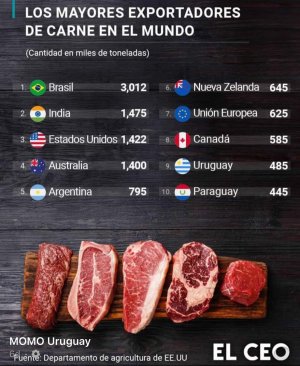Looks like beef consumption will go down even more. Prices are expected to go up 10% in the coming weeks.
In Argentina there is a shortage of livestock that could lead to an increase in meat prices by up to 10% in the coming weeks.
This increase is primarily due to a reduction in the supply of cattle, which has been impacted by factors such as droughts and the early release of animals in recent months.
Reduction in Supply: The shortage of livestock has intensified, with a 15% drop in the Cañuelas Agro-Livestock Market (MAG). This has led to an increase in the prices of livestock, which could be passed on to butcher shop counters.
Droughts and Climate Change: Droughts have negatively affected the availability of cattle for slaughter, a situation expected to continue in 2025.
Changes in Dietary Habits: Although Argentina remains one of the largest consumers of meat per capita, there is a growing trend towards consuming chicken and pork instead of beef.
Price Increase: It is anticipated that meat prices will rise by between 5% and 10% starting this Monday. This could vary depending on how the public responds to these changes.
Butcher Shop Strategies: In a context of declining demand, butcher shops might opt to increase prices for some cuts while maintaining popular ones, or absorb the cost increase if possible.
If prices are not validated, it is possible that butchers will have to backtrack and lower prices again. This will depend on how consumers respond to the increases and the ability of butcher shops to absorb costs without losing customers.






